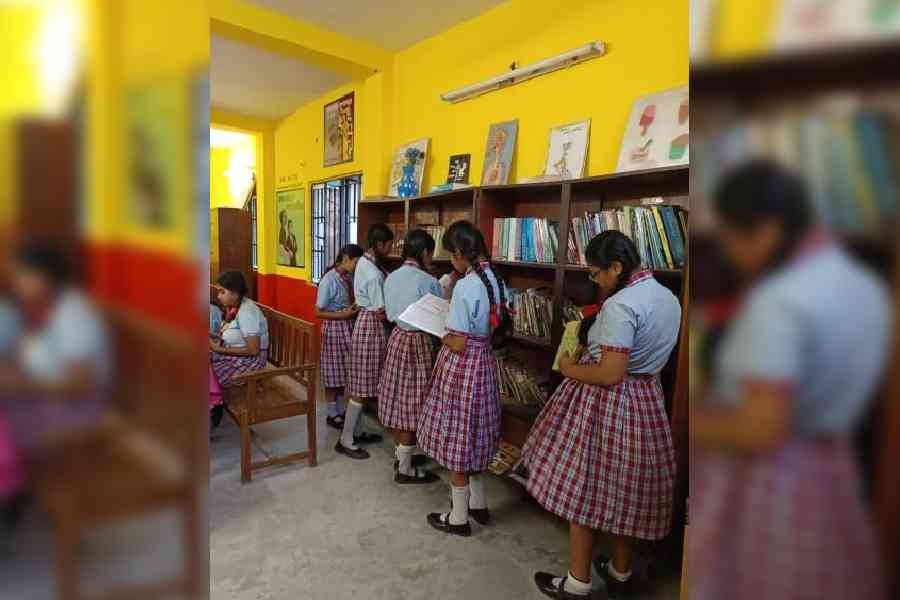School gives Boi Bhalobashi award to girls who read


A government- sponsored school awarded girls who regularly borrow and read books from the school library.
Introduced this year, the initiative at Children’s Welfare Association High School for Girls in Behala is to encourage more girls to read as well as appreciate those who do, said the headmistress.
Unlike earlier, children now rarely slip a storybook between textbooks when they are supposed to be studying. It is more common to see them texting or browsing a smartphone in class instead.
Fifteen girls from Classes VIII to XII were awarded at the school’s annual programme held in October.
The award — Boi Bhalobashi (Love books) — has been instituted by the school with support from teachers who volunteered to contribute from their pockets for the prize.
“The teachers selected the girls from various classes after observing them throughout the year. These are girls who have borrowed a book almost every week and read the books, too,” said headmistress Sarbari Sengupta.
At a time when children hardly read, it becomes the school’s responsibility to push them into reading, said Sengupta.
“We cannot blame children alone when adults do not read books either,” she said.
During a recent parent-teacher meeting, the school addressed parents on the need for their children to read books and how they should be more supportive of it.
Many parents reprimand their daughters for reading storybooks saying “exams are approaching”, a school official said.
“We told the parents that reading would automatically improve their language, spelling and communication in several subjects. To encourage children to read, we first have to convince the parents, many of whom think that reading storybooks could be a waste of time,” said Sengupta.
The school caters to many who are first-generation learners and their parents struggle to make ends meet.
On many occasions, the girls rely only on the school library for access to books. They have few or no books at all at home.
Many of the parents believe that all that their daughters need to read are textbooks.
Such a belief is increasingly apparent even in more privileged households where reading has taken a back-seat.
There are academically excellent girls who are among the toppers but they fail to understand anything beyond marks, Sengupta said.
They haven’t been able to comprehend the joy of reading, a teacher said. “Such girls lack empathy, imagination and creativity,” she said.
In the past, the school has tried several other measures to promote the habit of reading.
Teachers have accompanied girls to book fairs and the school has organised book fairs where girls can buy books from their pocket money.
“The school had organised a book reading day when teachers brought books from their homes and the girls browsed and borrowed books to read,” said Sengupta.